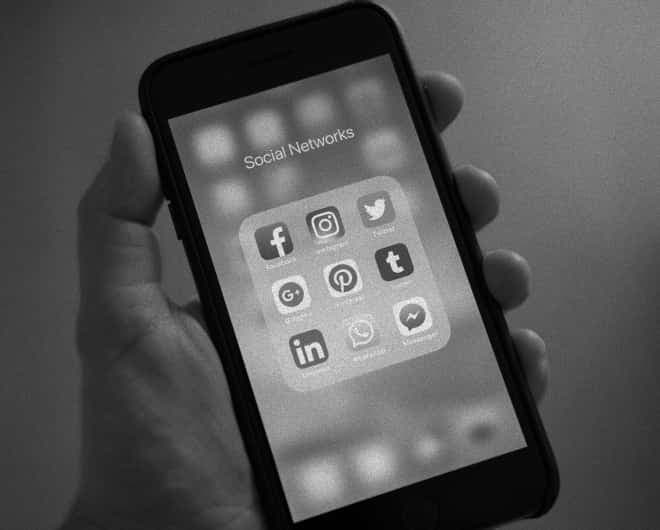The 12 Best Alternatives to WhatsApp

WhatsApp Messenger, owned by Facebook, is inarguably the most downloaded messaging app on the internet. However, the company has recently become very unpopular with its customers when it changed its privacy policy. These changes affect how WhatsApp handles your data as part of the Facebook group. According to the new WhatsApp privacy policy, the app will collect your private information and share it with Facebook.
Many disgruntled customers are looking for alternative messaging apps that do not violate their privacy with these new changes. However, not many people know what those options are. Keep reading to learn about the ten best apps that you can use as an alternative to WhatsApp.
Viber
With 1.1 billion users around the world, Viber is another one of WhatsApp’s strong contenders. A well-known messaging and VoIP app, Viber brings the fight to WhatsApp when it comes to features. The app secures calls, messages, and shared media using end-to-end encryption. Unlike WhatsApp, Viber offers multi-device support and ensures that all messages are encrypted across devices.
Beyond security features, Viber allows users to send voice and video messages, use stickers in chats, share files, and note when a friend was last online. There is a sticker store, and users can play games within the app - known as Viber games. The app also allows users to back up their messages to Google Drive.
All of Viber’s features are very similar to WhatsApp. However, the app has one significant advantage over WhatsApp; it allows users to make low-cost international calls through the Viber Out service. This VoIP-enabled service is precious and makes Viber a practical alternative to WhatsApp.
The Viber app is available on Android, iOS, Windows Phone, and Windows. It’s free to use, but you’ll have to pay to make international calls through Viber Out.
Discord
Discord used to be just a platform where gamers could come together and talk. With 140 million active users every month, however, the platform has become so much more than that.
Discord offers various servers that users can explore to engage their interests and allows users to send each other direct messages. Although often overlooked, Discord offers direct messages with text, emojis, GIFs, emotes (available for Discord Nitro), images, and documents.
Discord also allows its users to make voice and video calls, share screens, or browse together. The app also features excellent integrations from Twitch, YouTube, Spotify, Reddit, Battle.net, Twitter, GitHub, Facebook, and Xbox Live.
Discord also offers a group chat feature, allowing up to ten people to participate. The Discord app is available for free on Android, iOS, Windows, macOS, Linux, and Web.
Snapchat
Snapchat is not technically a messaging app. Instead, it’s one of the biggest social media apps available. 293 million people use it every day. However, many use it as an alternative messaging app due to some of its unique features.
For example, Snapchat users can send messages and set them to self-destruct after a specified period. The app also sends users notifications when the person they talk to takes a screenshot of their conversation. Third, Snapchat offers a face mask and filter collection that other messaging apps do not have.
Snapchat also has other messaging features, like making voice calls, creating group chats, setting up group voice calls, and more. As a result, some claim that Snapchat is one of the most innovative chap apps available and that WhatsApp and Facebook messengers copy features from the app.
While nobody can validate these claims about its innovativeness, Snapchat remains an excellent alternative if you’re considering dumping WhatsApp. You can download Snapchat for free on iOS and Android.
Skype
WhatsApp is undoubtedly a good app for personal messaging. However, for people who require business chat applications, Skype is one of the best chat apps available.
Acquired by Microsoft in 2011, Skype has outdistanced most business chap applications in terms of popularity and usability. If you make many voice and video calls, Skype is one of the best chatting applications you can use. As of 2019, Skype had 1.33 million users around the world.
Skype is beneficial if you need to make overseas calls. The app uses VoIP technology to connect with any telephone number and gives much better audio quality than traditional lines. Skype also allows users to make single and group video calls.
Skype is available for free on Android, iOS, macOS, Windows, Web.
Wire
Wire offers an encrypted messenger with voice, text, and video options. The Wire app also supports file sharing, GIFS, and pretty much everything WhatsApp offers. Also, you can sync your account across multiple devices or even create another account.
The encryption protocol used by Wire, Proteus, is based on the protocol that WhatsApp and Signal employ. While it offers a paid business tier, the service is free for mobile and desktop.
Telegram Messenger
Telegram Messenger has been WhatsApp’s most significant competitor for more than seven years, and nothing about that has changed. At least 55.2 million daily users consider the open-source messaging app to be the best alternative to WhatsApp available online. Telegram comes with all the usual messaging features that WhatsApp provides. However, it also offers additional features that WhatsApp does not have. For instance, Telegram allows users to create super-groups containing up to 100,000 members. Also, users can create multiple usernames, set up public channels, share files up to 1.5GB in size, and send self-destructing messages. The app also allows users to create secret chats using end-to-end encryption.
As if the list of impressive features wasn’t enough, Telegram also offers Bots, which magnify your messenger experience. Telegram’s bots offer multiple services. Some bots provide crucial information in real-time, while some allow users to play games within the app.
Telegram has other advantages over WhatsApp. For instance, you can use Telegram on multiple platforms simultaneously, independent of your telephone. With WhatsApp, the only other medium you can use is the desktop app, and your phone would have to be online for you to connect.
The main disadvantage of using Telegram - compared to WhatsApp, is the inability to make video calls. However, if video calls are not your thing, then Telegram is hands down a great alternative to WhatsApp. Also, because Telegram allows anyone to create channels or super-large groups, the chances of being a target of phone scams on Telegram are high. The app is freely available on Android, iOS, Windows Phone, Windows, macOS, Linux, and Web.
Kik
Another thing that WhatsApp, Telegram, and Signal all have in common is that they make you sign up with your phone number. Although many people see this as a regular thing, others feel discomfort at the thought of sharing their numbers on these platforms.
There are alternative messaging apps that do not require your phone number to use their services. One example is Kik, a messaging service that only requires your email ID to register. Once you provide your email ID, Kik sends you a unique username that you can use to chat with other Kik users.
Although Kik doesn’t ask for a phone number, it still provides all the features you want in a messenger. Kik users can access text messaging, stickers, emojis, file sharing, group chats, and other essential features.
One of those critical features that Kik offers are bot services - which are unavailable on WhatsApp. Kik Bots provide users with up-to-date news, fashion tips, quizzes, and games.
Kik’s unique selling proposition is the fact that users can sign up without providing their phone numbers. The app is available for free to Android and iOS users. As of 2016, Kik had 300 million active users. The company has not given an update on its user base since then.
Signal Private Messenger
WhatsApp Messenger and Facebook Messenger both use the Signal Foundation’s end-to-end encryption technology to secure their messages. However, not wanting to be left out of the party, the Signal Foundation set up the Signal Private Messenger app. As of January 2021, the Signal Messenger App had 40 million active users.
The Signal Messenger is one of the most secure messaging apps available and - compared to WhatsApp - holds many benefits. For example, Signal allows users to send self-destructing messages and offers screen security - stopping people from taking screenshots of conversations.
Signal also provides full-on encryption for calls, group calls, app backups, and other types of data you might need to store on the app. Signal even encrypts the files that users share among themselves. More importantly, unlike WhatsApp, Signal does not keep or share any data related to your identity.
If you value being able to have secure conversations, Signal Messenger will work well for you. For instance, many journalists favor Signal Messenger, allowing them to maintain privacy while doing their jobs.
The Signal Messenger app is available for free on iOS and Android devices.
Keybase
If you want another super-secure chat app as an alternative to WhatsApp, you’ll want to consider Keybase. Keybase is an open-source messenger application that does not store your data. Instead, Keybase secures all data using end-to-end encryption technology, ensuring that nefarious actors never have access to it.
If you have a conversation on Keybase, the app will not let you take a screenshot of that conversation. Some users would say that Keybase is more like Slack, good for business, rather than WhatsApp. However, Keybase is not business-oriented and mainly targets users who want privacy when communicating online.
Unlike WhatsApp or other messenger apps, Keybase does not make users share their phone numbers or email addresses to connect with other users. Instead, users communicate through their unique ID only. This policy allows users to protect their privacy.
Finally, Keybase is one of the few messenger applications with an application for the Linux operating system. Keybase is also available on Android, iOS, macOS, and Windows
Bridgefy
Although messenger apps like Telegram and Signal have many features that differentiate them from WhatsApp, all three apps work using an internet connection. Unfortunately, this means that none of these apps will work for you if you’re in a remote location like the woods or the desert.
If you’re going to head out into the wilderness, you’ll need an alternative to internet-enabled messaging apps. These alternatives are called offline messaging apps, and they allow users to send messages without a mobile network or an internet connection.
Instead of using the internet, offline messaging apps set up a peer-to-peer Bluetooth mesh network or Wifi Direct-based network on your device. This setup enables you to send messages to nearby devices using the same technology. A famous example of an offline app is Bridgefy.
Bridgefy provides messaging service in three main ways; Person-to-Person mode, Broadcast mode, and Mesh mode. If you have a friend in your vicinity, you can send them a message. You can also broadcast your messages to entire groups or send long-distance messages by using other Bridgefy-enabled devices as nodes.
The Bridgefy app is available for free on Android and iOS, and more than one million people in ten countries have downloaded it.
Threema
If you are concerned about your messaging security, then the Threema Messaging app should interest you. Threema is a highly secure app that encrypts all the data that it uses. The app encrypts everything from messages to shared images and even your status updates. As of January 2021, Threema had more than five million users around the world.
Threema offers most of the standard messaging features that WhatsApp provides. It even provides a web client that is very similar to WhatsApp web. Threema, however, has a few unique features. For instance, Threema users that set up group chats can conduct polls. Users can also chat anonymously, agree or disagree with a message, and protect their chats using passwords or fingerprints.
The app does not have as many features as WhatsApp offers. For instance, Threema users cannot make voice or video calls. The app’s security features, however, are enough to make it noteworthy. Not only does Threema offer end-to-end data encryption for messaging, but it also provides multiple encrypted backup options. As an open-source app, Threema has a very open privacy policy and does not collect its users’ metadata. Threema is available for $2.99 on Android, iOS, and Web.
Google Messages
You can think of Google Messages as Google’s response to iMessage. The app was developed for the Android system, but also offers a web version. Android phones typically come with Google Messages, but it can also be easily downloaded from the Google Play Store.
Google Messages supports file and photo and video sharing, but unfortunately doesn’t offer video and voice calling. Instead, that’s a job for Google Duo. Good news: if you have Google Messages on your Android phone, you can get Duo too.
Which Alternative Should You Go With?
Considering the many alternatives that exist, you might be wondering which to choose. If you’re interested in a messaging app with more features than WhatsApp, Telegram might be your best bet. However, if you’re more interested in security, you might want to try Signal or Keybase, which are both free to use.
If security is genuinely your biggest concern, you can opt for Threema, a paid app that encrypts every single piece of data that goes through it.
You might have other reasons for seeking an alternative to WhatsApp. For business messaging, Skype is an excellent option. If, however, you’d like a messaging app that you can use even when you don’t have an internet connection, you’ll want to look at Bridgefy.


